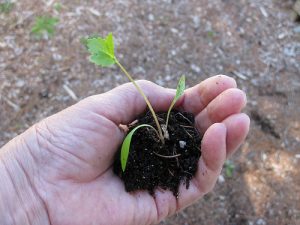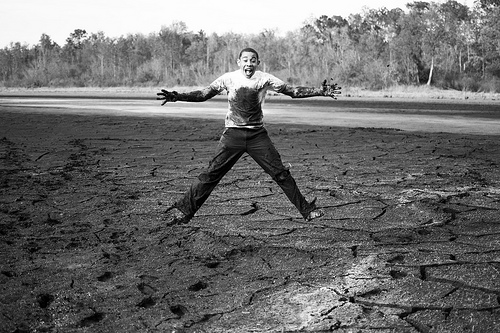Revised Common Lectionary reflection for the Fourteenth Sunday after Pentecost, Proper 18, Year A
September 10, 2017
Lessons: Ezekiel 33:7-11, Alternate: Exodus 12:1-14, Psalm 119:33-40, Romans 13:8-14, Matthew 18:15-20
Theme: God’s faithful and generous people understand that Jesus is present whenever two or three are gathered in his name — even when we humans are prone to make a big mess of things.
Key Scripture: The commandments, “You shall not commit adultery; You shall not murder; You shall not steal; You shall not covet”; and any other commandment, are summed up in this word, “Love your neighbor as yourself.” Love does no wrong to a neighbor; therefore, love is the fulfilling of the law. Romans 13:9-10
Again, truly I tell you, if two of you agree on earth about anything you ask, it will be done for you by my Father in heaven. For where two or three are gathered in my name, I am there among them.” Matthew 18:19-20
Preaching/Teaching Reflection
Wouldn’t it be wonderful if we all could simply get along — at least most of the time? Even the psalmist must have thought so when he wrote “How very good and pleasant it is when kindred live  together in unity!” (Psalm 133:1). The reality is that wherever two or three humans gather for anything, there is bound to be conflict at some point, and the church is certainly no exception.
together in unity!” (Psalm 133:1). The reality is that wherever two or three humans gather for anything, there is bound to be conflict at some point, and the church is certainly no exception.
If you have ever led/served, whether volunteer or vocational, in a congregation, you know that it is to experience conflict. It might be an argument over worship settings or whether the flag belongs near the altar. The problem could be hurt feelings over something the pastor did or did not do, or it might be a poorly received council decision. Perhaps a major denominational decision divides the congregation into various camps. However it manifests itself, conflict is an unfortunate and very real part of the human experience.
What separates the church – at least what should separate the church – from the rest of the world is how we deal with conflict. More than that, what sets the church apart is how we live and work together. Warren Carter, in Matthew and the Margins, identifies five marks of the discipleship community in reference to this week’s gospel:
1) The image of being like a child indicates a social location of insignificance, marked by powerlessness and marginality.
2) There it lives an alternative, against-the-grain life of the cross, the paradoxical way of greatness.
3) Given this difficult existence, disciples must not cause each other to fall or sin.
4) They must care for one another, actively vigilant in guarding one another as God guards them.
5) In this they embody God’s love. (366)
Could it be that our fading numbers have something to say about the way in which we embody (or fail to embody) these five traits? Is it possible that some mainline congregations have become so comfortable with their “protected” status in America that they have literally bored themselves to reduced numbers and flagging relevance? Does the Body of Christ go against the grain of culture or does it seek to blend into the landscape? Do we actively work to keep our sisters and brothers from stumbling and work tirelessly to build up one another, or are we too busy and/or fatigued to care beyond occasional pew warming? Do we embody the love of God or serve the self as culture would have us do?
Sure, maybe these questions don’t sound fair when you think about your community. I sure hope they don’t! I hope your community of faith understands that when Jesus says he is with you whenever two or three are gathered in his name, that it isn’t just a way to justify poor worship attendance numbers but rather is reflective of the close-knit discipleship community envisioned by Matthew. I hope and pray that your community has learned to talk honestly, respectfully, and faithfully and that you can listen actively and kindly. Perhaps you have put on the armor of light about which Paul speaks and are practicing love. If not, then I hope you are at least trying to change your spiritual wardrobe.
Ministry is messy; this is fact. There is no way to be intimately involved in the work of God without getting dirt under our fingernails and confronting the debris of broken lives and dreams. The key is all in how we handle it. Do we practice love or do we give in to gossip? Do we dare remove our safe masks and let others see our true and vulnerable selves? Are we real, or are we who we “think” we ought to be? Are we able to reflect God and God’s love for creation in both our being and our actions?
Think with me for a moment. If your community of faith could be the ideal embodiment of God’s love in this world, what would that really look like? Now ask yourself how far your vision is from the reality. If there is disconnect between practice and passion, what can you do about it? You, dear friend, have the tools and talents to roll up your sleeves and stride into the muck. If you will do this, perhaps your friends and family members will join you. As they step into the mess, others will follow.
 Like a wronged brother or sister who follows Jesus’ example and wades into the mess of relationship to seek clarity and healing, so you can step into the mess of humankind to seek the kind of Christian community that is possible and indeed already exists in many places. Yes, there will be conflict, and yes the imperfection and brokenness of humankind will create muddy moments and dirty deals.
Like a wronged brother or sister who follows Jesus’ example and wades into the mess of relationship to seek clarity and healing, so you can step into the mess of humankind to seek the kind of Christian community that is possible and indeed already exists in many places. Yes, there will be conflict, and yes the imperfection and brokenness of humankind will create muddy moments and dirty deals.
How we interpret scripture in these muddy moments, what we loose and what we bind, makes all the difference in how we function as the beloved community. When love and care of neighbor is the central focus, then we reflect God’s love to the world. We look different; we may stand out like the nerd or the geek or the freak. We may not look like the rest of the world when we wear our ancient Christian “fashion” instead of the latest trends, but in our obvious difference we are beautiful and real. We provide a welcome harbor for all those who are hurting and broken, for all those whom God loves. It is here we will find Christ present – right smack dab in the middle of the mess. Thanks be to God!
In Worship
What masks are the people in your congregation wearing? If possible give everyone a simple mask made from cardstock with two holes cut for eyes. Do not cut a hole for the nose or mouth. Ask them to hold the masks up to their faces and look around. What do they see? What are we hiding from one another? What hurts and hopes do we fiercely protect behind our masks? Do our masks reflect our idea of social acceptability, of how we desire others to see us? What would happen if we put down those masks and instead put on “the Lord Jesus Christ” (Romans 13:14)? Invite people to take these masks home and decorate them with that which is real as a way of leaving the emotional and social masks behind.
With Youth
Continuing the mask theme, check out the animated YouTube Video by PhilosopherFresh “We Wear the Mask” set to music by Linkin Park (“No More Sorrow”) and featuring the poetry of Paul Laurence Dunbar. Use this week’s epistle (Romans 13:8-14) and this quote by James Arthur Baldwin (“Love takes off masks that we fear we cannot live without and know we cannot live within.”) as the basis for a discussion after viewing the video.
With Children
If possible, use a clip from Veggie Tales’ The Pirates Who Don’t Do Anything. Talk with the children about the song the pirates sing about “pirate things” they do not do and the pirate (Larry) who sings about the “non-pirate things” he does not do. What is our song as children of God?
Another option is to assemble a variety of masks (animal masks are particularly good) and have each child don one and assume the persona of his or her mask. What does a tiger act like? Or how does a bunny behave? What sound does a lion make? Once each child has “acted out” his or her masked personality, have everyone remove the masks and talk about how wonderful it is to see each child as he or she really is. Tell them that God loves us just the way we are, and while it’s fun to wear masks, always remember to be yourself so that others can see the love of God in you.
Weekly Stewardship Bulletin Insert
Are you a “sleepy steward”? In this week’s epistle lesson, Paul urges us to wake up from our sleep and pay attention to all that is happening around us. How are we handling conflict? Are we responding with love toward our neighbor? Do we see the urgency of sharing the amazing good news of Jesus? Do we use our resources in ways that are faithful and life-giving? Or, are we “sleepwalking” through life and missing all that God intends for us to be and experience?
Stewardship at Home
Jesus tells his disciples that “where two are three are gathered in my name, I am there among them.” Often we use this promise to refer to sparsely attended worship services — almost as an apology. What if instead Jesus is reminding us that he is with us when we go back into the world, that there is power when we remember to walk through life in Jesus’ name?
This week, whenever you gather with another disciple — be it for a meal, an activity, or an outing — call on Jesus to be with you and guide you. Trust that your Lord is indeed among those with whom you are gathered. You might just be surprised at what you see, experience, and are motivated to do.
Photos: Frame It Photography, M00by, and Katerha. Thanks!
Note: Reprint rights granted to congregations and other church organizations for local, nonprofit use. Just include this note: “Copyright (c) 2017, Rev. Sharron Blezard. Used by Permission.” Other uses, please inquire: thewritelife@hotmail.com.




Leave a Reply